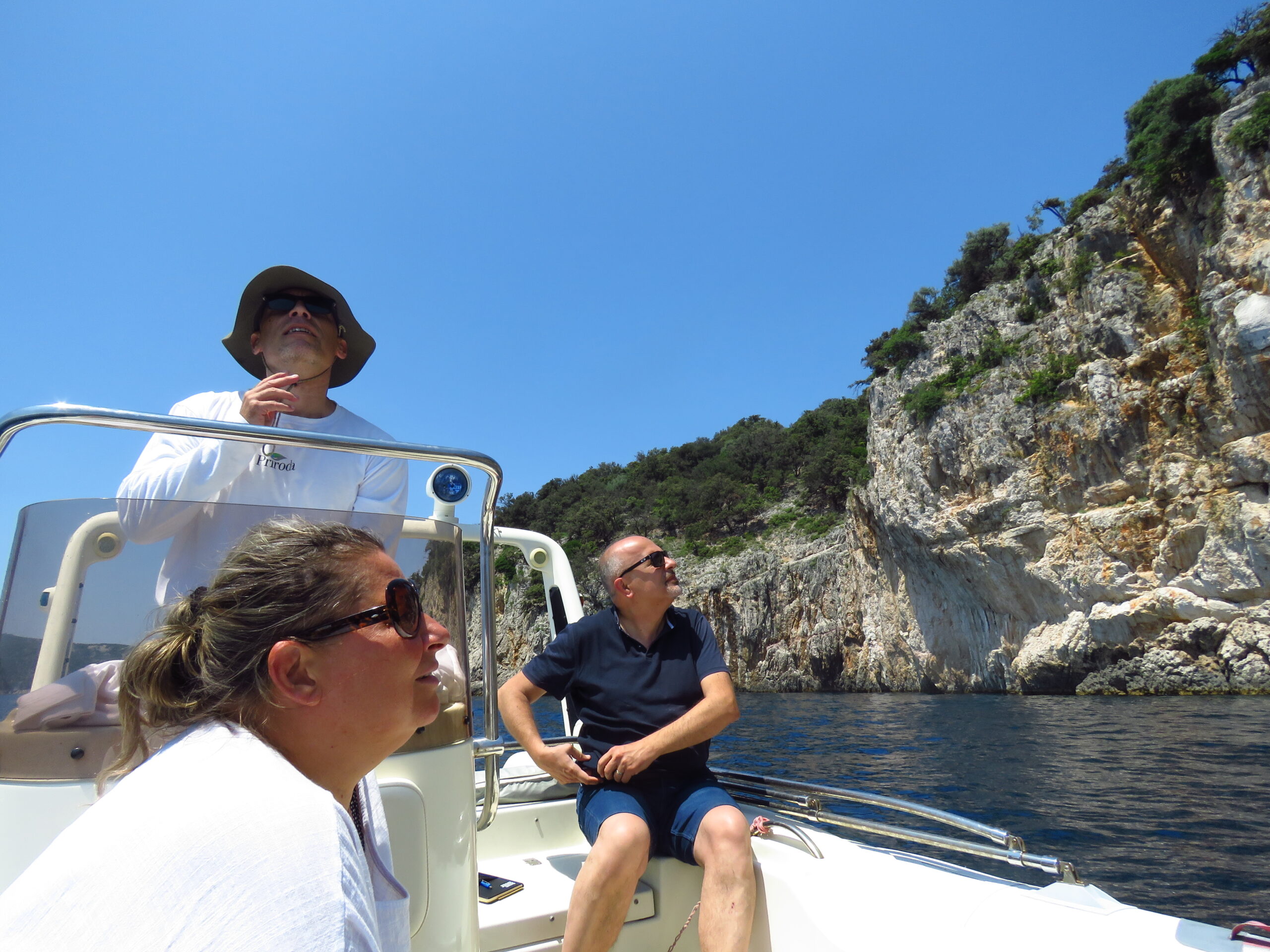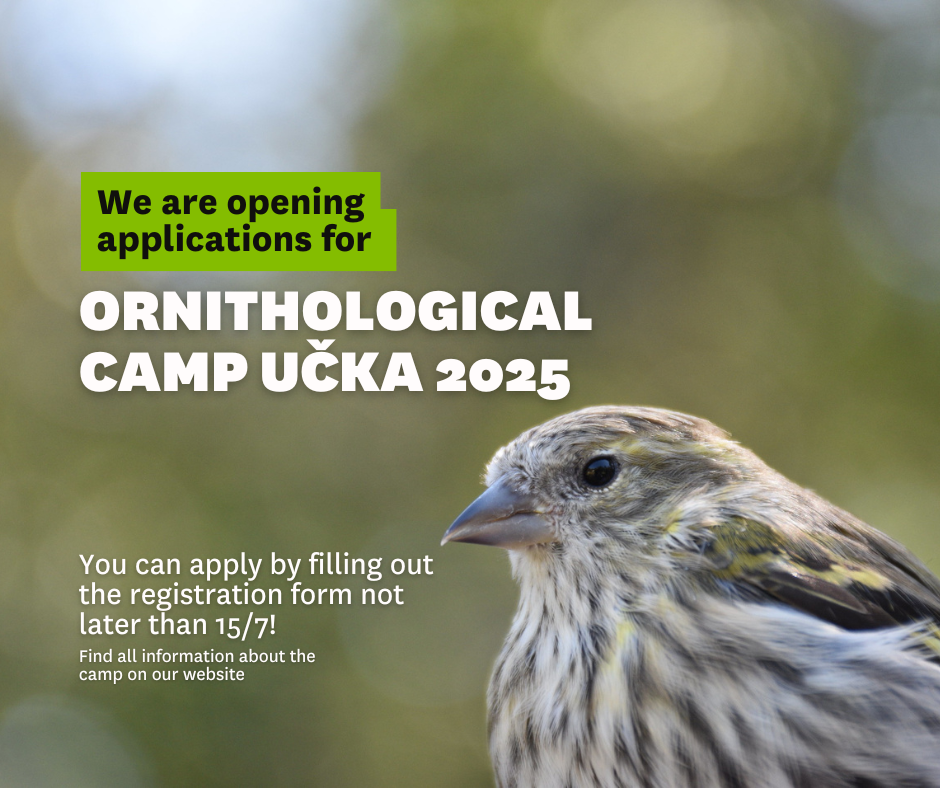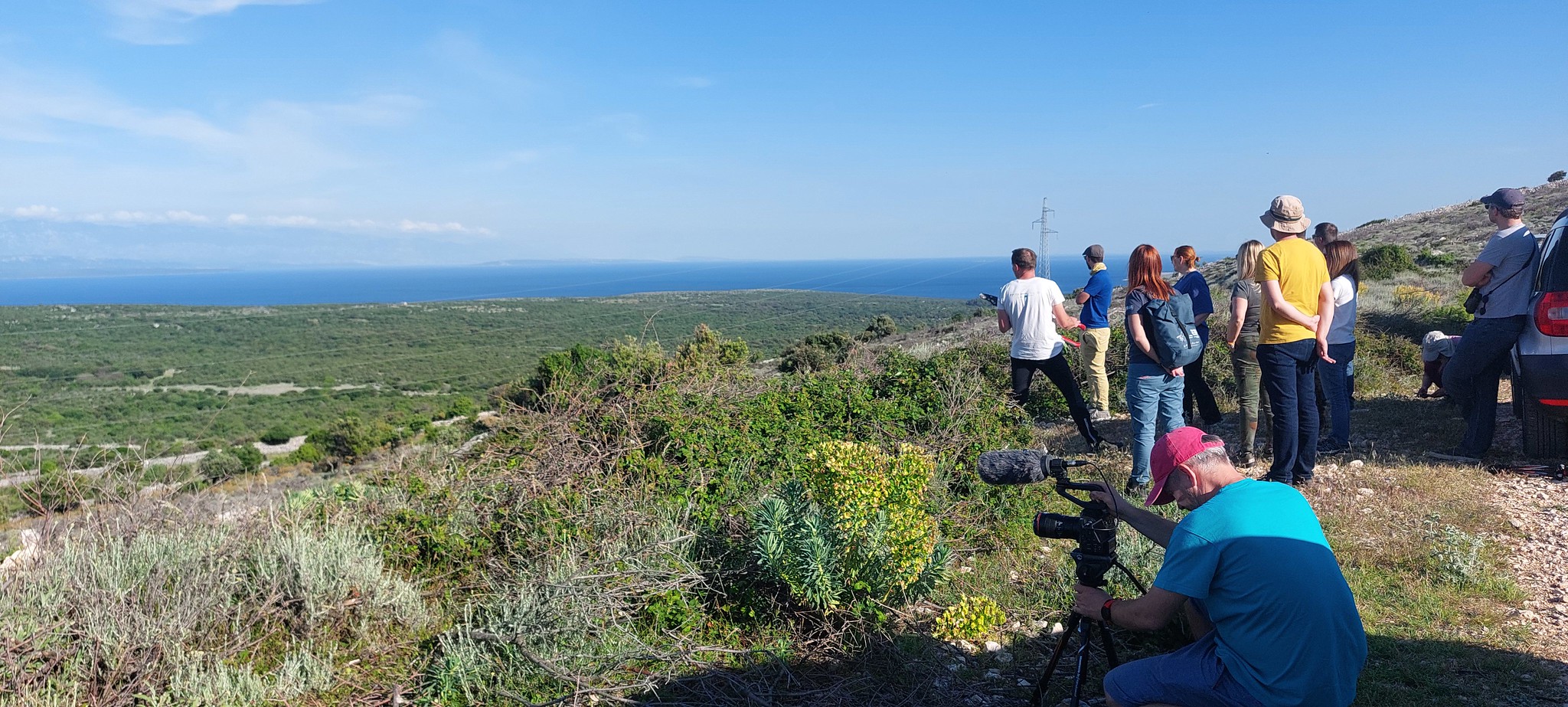Bee-eaters are native nesting birds, present in Croatia and all over the Mediterranean area during the spring and summer time. They are strictly protected species, according to the Croatian legislation and are also protected by the Convention on the Conservation of European Wildlife and Natural Habitats (Bern Convention) and the EU Birds Directive.
Because of their characteristic look, it is easy to resemble them while flying or resting on dry branches. They live in colonies that are built on sand habitats with steep slopes next to water areas or land. They nest in holes, up to 2 metered deep, and by digging these holes bees-eaters contribute to the quality of the earth by easing its enrichment with water, light and nutrients.
They are skillful flyers and hunters who use their long and curved beak to hunt their prey and, if needed, to remove its sting before consummation. Bees make only part of their diet and remains of other insect species can be found in their pellets, such as hornets (that can destroy entire beehives) and the Rose Chafers (that do significant damages to the orchards). Absence of the bee-eaters from their natural habitats leads to the disturbance of the balance of those areas and it can result by the positive effect on the abundance of unwanted insects.

Through last decades, the growth of the population of this species has been noticed in Croatia and it is presumed to be a consequence of the climate changes and human creation of numerous suitable habitats. Increased numbers contribute to higher possibility of conflict with humans and this is also favored by the fact that some natural habitats that were inhabited by large colonies are gone due to human activities. We assume that this is the reason for expansion of bee-eaters areas of presence and also their increased predation on bees. Large numbers of foragers and drones perish, but we presume that the biggest problem is when queen bee is lost during its mating flight. Bigger, slower and more noticeable than foragers becomes an easy target, and in its absence whole colony is ruined.
Beekeeping is branch of economy with positive role in the preservation of biodiversity and we recognize its sustainability and support its development. Beekeepers cannot simply prevent or at least reduce possibility of damages that bee-eaters do to their apiaries or even prove and quantify it. National institutions have very little contribution in the creation of preconditions for minimization of conflict and compensation of damages. Because of that, beekeepers sometimes take matters in their own hands and on inappropriate ways deal with bee-eaters and their colonies. Those kinds of things should never occur. We need to develop a model of sustainable coexistence of beekeepers and bee-eaters, and for that is necessary for beekeepers and experts for nature protection to cooperate. There is no place for half-cocked and hasty moves for solving this problem, but it is crucial to conduct quality researches as soon as it’s possible. That way, we would handle particular information about bee-eaters effect on beekeeping and honey production, analyze bee-eaters diet and also with help of obtained results we could establish the real state and make reasonable and necessary decisions.






